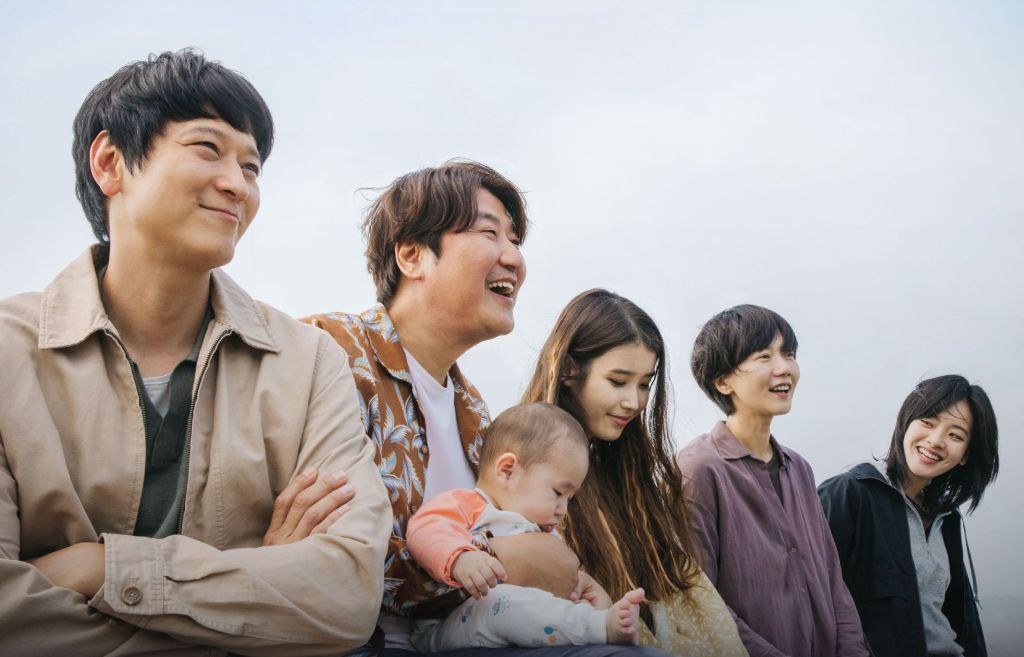Let’s dive into Broker, a film that feels less like watching a movie and more like listening to the quiet confessions of strangers. Director Hirokazu Kore-eda introduces us to the murky world of illegal baby brokers, but the heart of the story lies far deeper. It’s about human connections, flawed choices, and the grey areas of morality.
The film opens with So-young, a young woman, leaving her baby Woo-sung at a church’s baby box. From the start, we sense the weight of her decision. But instead of following her, Kore-eda shifts our focus. We meet Sang-hyun, a debt-ridden laundry owner, and Dong-soo, a worker at the church. They’re not heroes—they steal babies to sell on the black market. It’s shocking. Yet, the way the story unfolds makes us question our judgment. Are they villains, or just desperate?
As So-young returns, discovering their plan, she doesn’t react as you might expect. Instead of outrage, she joins them. Why? This is where the film’s emotional core begins to form. Each character carries a burden. So-young has her reasons for abandoning Woo-sung, just as Sang-hyun and Dong-soo have their own for what they do. Their journey becomes a search—not just for a buyer, but for meaning, for redemption.
The road trip that follows is a tapestry of small moments. There’s no big action, no shocking twists. Instead, we see stolen glances, awkward silences, and quiet revelations. Each stop introduces us to potential parents, and each interaction forces us to ask: what makes someone worthy of raising a child? Kore-eda doesn’t offer easy answers. He invites us to sit with the discomfort.
One of the most powerful scenes comes when Dong-soo confronts his past. He grew up in an orphanage, abandoned like Woo-sung. His anger isn’t loud; it’s a simmering resentment. We see his pain, his longing for a different life. It’s this backstory that softens our view of his actions. He isn’t just stealing babies for profit—he’s trying to give them the chance he never had.
Then there’s Sang-hyun, played by Song Kang-ho. He’s a man of contradictions. Warm, almost fatherly, yet capable of cold pragmatism. There’s a moment when he talks about his daughter, a relationship strained and broken. It’s subtle, but it explains so much. His involvement in baby brokering isn’t just about money—it’s a twisted attempt to atone, to fill a void.
So-young’s arc is perhaps the most compelling. We learn bits and pieces about her past, each revelation adding layers. She’s not a “bad mother” in the traditional sense. She’s a survivor, making impossible choices. Her quiet strength anchors the film. In one poignant scene, she holds Woo-sung, tears streaming down her face. It’s raw, heartbreaking.
The film’s pacing is deliberate, almost meditative. Some might find it slow, but that’s the point. Kore-eda wants us to feel the weight of each decision, each moment. Nothing is rushed. We sit with the characters, breathe with them. It’s uncomfortable at times, but deeply rewarding.
The cinematography mirrors this tone. Soft, natural lighting. Long, lingering shots. It feels intimate, almost voyeuristic. We’re not just watching these characters; we’re intruding on their lives. This visual style reinforces the film’s themes—nothing is black and white.
The final act brings a quiet climax. No grand showdown, no moral resolution. Instead, we’re left with questions. Choices are made, but the consequences are left for us to ponder. It’s a risky move, but it works. Life is messy, and Kore-eda refuses to tie it up in a neat bow.
One standout element is the film’s treatment of parenthood. What does it mean to be a parent? Is it biology, intention, sacrifice? Each character offers a different answer. Sang-hyun, Dong-soo, and So-young aren’t traditional parents, yet they form a makeshift family. It’s dysfunctional, but there’s genuine care.
The dialogue is sparse but loaded with meaning. Every word feels deliberate. There’s a scene where Dong-soo tells So-young, “You’re not alone.” It’s simple, but it carries the weight of the entire film. These are people who have spent their lives feeling abandoned, unseen.
The film’s title, Broker, is deceptively simple. On the surface, it refers to the illegal trade. But dig deeper, and it’s about the emotional transactions we make every day. The deals we strike with ourselves, the compromises, the justifications. We’re all brokers, in a sense.
In the end, Broker is more than a story about baby brokers. It’s a meditation on human frailty, on the thin line between right and wrong. It asks us to see beyond actions, to understand motivations. It doesn’t excuse, but it humanizes. And in doing so, it leaves a lasting impact.
This isn’t a film for everyone. It’s slow, quiet, and morally complex. But if you let it, it will stay with you long after the credits roll. It’s not just a movie—it’s an experience, a conversation that continues in your mind. That’s the mark of great storytelling.
